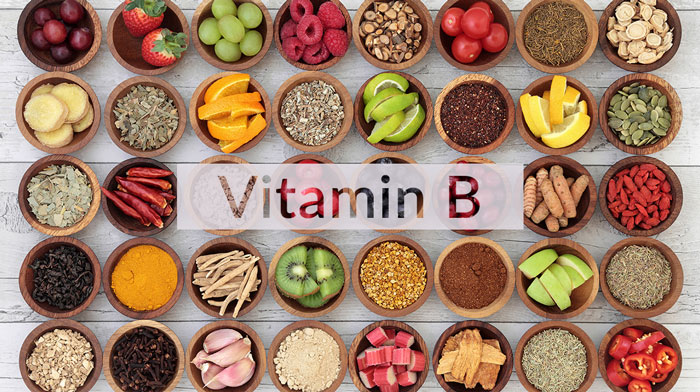ω-3 Unsaturated fatty acids are important nutrients of the brain and cranial nerves, with DHA and EPA being short forms of docosahexaenoic acid and eicosapentaenoic acid. DHA and EPA are mainly derived from marine animals, especially fish oils. Depression in patients with DHA levels lower than non-depressed patients, while EPA is lower, the more severe depression. The study found that EPA can trigger the efficacy of antidepressants or itself has some antidepressant function, in this study will be treated with conventional treatment of recurrent depression patients were randomly divided into two groups, receiving antidepressants On the basis of treatment were given EPA fish oil pills or placebo. The results showed that 60% of patients in the EPA group showed a corresponding improvement in depressive symptoms, including depression, guilt, inferiority and insomnia. In contrast, only 10% of patients in the control group experienced such improvements.

2 Vitamins and Minerals
Vitamins and minerals are the most basic nutrients in the body’s metabolism, the main catalytic role in regulating the body’s metabolism of various substances, so that other nutrients can be fully absorbed. B vitamins (B1, B2, B6, B12, niacin, pantothenic acid, folic acid, inositol), vitamin C, vitamin D and other minerals are mainly calcium, magnesium, selenium, chromium, iron, zinc, A lack of vitamins or minerals can produce the corresponding mental effects.
One-third of patients with depression have mild or moderate vitamin B1 deficiency. Vitamin B1 is also known as thiamine. It promotes the metabolism of carbohydrates and fat and plays a coenzyme role in energy metabolism. There is no energy without thiamin. Benton et al. Found that female college students who took vitamin B1 for two months each day had psychological tests that were agile, quick-witted, and had stable mood scores twice as premorbeth; those who took placebos did not change. Lack of vitamin B1 lead to glucose metabolism disorders, can cause depression, anxiety, indifference, irritability, may be Sackoff syndrome. Foods rich in vitamin B1 are meat, rice, corn, soy products, kidney, nuts (sunflower seeds, peanuts), wheat bran and so on.
Vitamin B6 plays an important role in maintaining normal mental activity. Depression in patients with low levels of vitamin B6, especially women taking oral contraceptives more pronounced. Contraceptives can consume vitamin B6, some studies show that depressed women are more likely to develop vitamin B6 deficiency than women who do not have depression, even with no contraceptives. Other studies have also shown that vitamin B6 supplementation can reduce premenstrual syndrome Depression. Many doctors advise women with premenstrual syndrome to take vitamin B6 daily and take their dose under the supervision of a doctor. Foods rich in vitamin B6 are nuts, bananas, corn, fish, kidney, meat, liver, poultry and soy products.
The lack of vitamin B12 can cause mood disorders, the study found that 30% of patients with depression in the absence of vitamin B12, depression caused by vitamin B12 can occur in patients without anemia, vitamin B12 injection sometimes can significantly improve mood. Depression in 31% -35% of patients with folic acid deficiency, older patients are more common, up to 35% -92.6%, depression is a common symptom of folic acid deficiency. Folic acid supplementation can increase lithium salt treatment of bipolar disorder effect. Folic acid, vitamin B12, methionine is mainly to provide methyl, involved in the synthesis of neurotransmitters, folic acid and promote methylation to increase the content of serotonin, its antidepressant is mainly to raise the level of serotonin. Alcohol-induced chronic depression, clinically high doses of folic acid 10-30mg treatment, the effect is obvious. Folic acid-rich foods include citrus fruits, tomatoes, vegetables, whole grains and beans, while lean meat, poultry, fish and dairy products are rich in vitamin B12 clinical studies have shown that patients with depression inositol low, large Inositol supplementation increased body stores by as much as 70%. In a double-blind trial, depression patients were treated with 12 inositol supplements for four weeks each, with significantly improved symptoms and no side effects compared with placebo. Another double-blind follow-up study also confirmed the antiinflammatory effect of myo-inositol, and 50% of patients with depression relapsed soon after inactivation of inositol. Inositol rich foods animal liver, brewer’s yeast, bovine and beef heart, raisins, malt, peanut and so on. Other B vitamins such as vitamin B2, niacin, pantothenic acid deficiency, can also cause depression, but clinically rare.
Vitamin D can improve mood, a double-blind trial found that: healthy subjects were taken in the winter five consecutive days 400-800IU / d of vitamin and placebo, the result is taking vitamin can significantly improve the mood and reduce the negative mood ; Another double-blind trial also found that patients without depression, taking both vitamin D 600 IU and calcium 1000 mg twice daily for four weeks, significantly improved their mood for at least a week after taking the drug compared with placebo.
Vitamin C can improve the utilization of iron, calcium and folic acid, promote amino acid tyrosine and tryptophan metabolism, enhance the body’s anti-stress ability and immunity. Lack of vitamin c can appear tired, emotional apathy, weight loss, depression and so on. Vitamin P can enhance the use of vitamin c in the treatment of depression plays an important role.
Calcium, magnesium, selenium, chromium, iron, zinc, manganese, potassium and other body enzymes are important components of the regulation of body protein, carbohydrates, lipids and other metabolism, any lack of, can lead to depression. A preliminary study found that high-selenium diet (daily intake of 226.5mg of selenium) than the low-selenium diet (daily intake of 62.6mg of selenium) can improve mood, such as reducing depression, anxiety, paranoid and so on. Daily supplement of 200 ~ 400mg of chromium can make the mood of people depressed significantly improved. And arsenic, aluminum, bismuth, mercury and other unnecessary substances too, can also have depression.
Leave a Reply